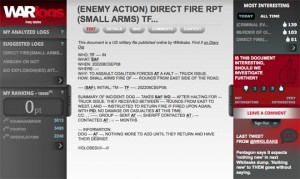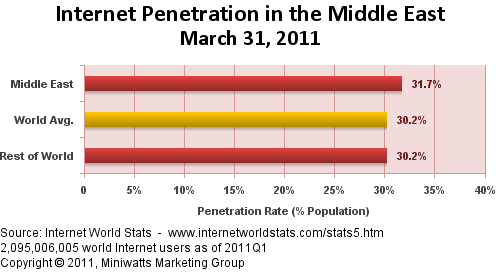Social media has begun to not only connect people on a global scale, but has started to create social change within societies. The Arab Spring is a revolutionary wave of demonstrators and protesters in the Arab that began on December 18th, 2010 with intentions to force rulers out of power through civil uprisings. The triggering event that caused this uprising throughout many countries was the self-immolation of Mohamed Bouazizi in protest of police corruption and ill treatment in Tunisia. This sparked unrest within Algeria, Jordan, Egypt and Yemen as well as other countries. There has been success within these four countries as the public has overthrown the government.
The way in which this revolution is different from those in the past is that the Internet has played an important role whereas before, the Internet was not a contributing factor whatsoever. With social networking websites such as Facebook and Twitter being incorporated into these social movements, people are able to spread information much quicker as well as voice their opinions and start online communities. The role of social media:
a) Allows the mobilization of protesters rapidly
b) Undermines a regimes legitimacy
c) And increases national and international exposure to a regimes atrocities
Internet usage within the Middle East had grown an exponential 1,825.3% between 2000 and 2010 including an increasing number of Facebook users to this day. In April 2010 there were close to 15 million users on Facebook and one year later the numbers had nearly doubled to 27,711,503 users. As of March 2011, there were 1,150,292 active users on the micro-blogging site Twitter that generated 22,750,000 tweets. Twitter user Hani Morsi from Egypt tweeted “Social media has created a sort of Alternate Space for receiving a dormant public consciousness, into a sentient, dynamic social discourse” in 2011.
Internet traffic within Egypt dropped drastically on January 27th 2011 due to authorities restricting access by shutting down the countries official Domain Name System in order to prevent the mobilization of anti-government protesters. However, on February 2nd after President Barak Obama stated that the Internet ban should come to an end, connectivity had been re-established by the four main Egyptian service providers.
The Internet and social media has allowed for people all over the world to come together for causes, like the Arab Spring to create change. During the presentation, I was continuously reminded of other social movements that took place and were highly public due to the publicity received on social networking sites. Two that came to mind were the Occupy Movement, and KONY 2012. Both of these movements, although not political, revolved largely around social networking sites. For example almost all of the publicity gained by the KONY 2012 movement were gained through Twitter and Facebook. The Invisible Children organization which created the KONY 2012 movement asked celebrities like Rihanna to tweet about the subject creating awareness. This created a great deal of publicity on a global scale. Allowing the public to be emotionally moved by what they know and band together to create awareness can lead to change. Regardless of the controversy surrounding the KONY 2012 movement, it shows great similarities to the Arab Spring. I believe that this recent use of the Internet and social networking sites will continue to create change in the future.
– Alyssa Gauk





